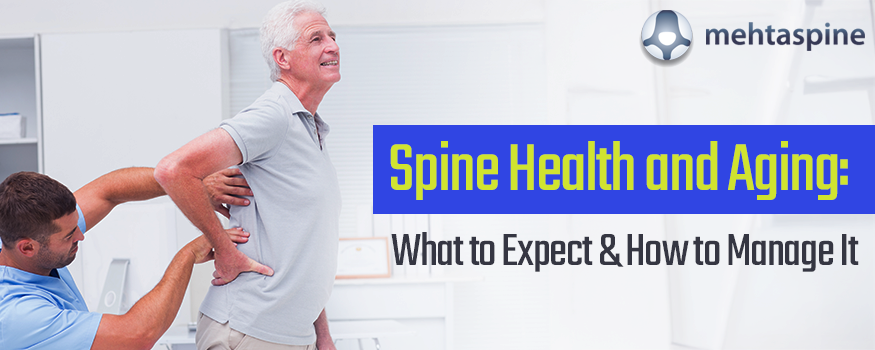Spine Health and Aging: What to Expect and How to Manage It
Aging is inevitable—but chronic back pain doesn’t have to be. As we grow older, our bodies undergo natural changes, and the spine is one of the first places these shifts begin to show. Understanding the connection between spine health and aging helps you stay ahead of discomfort and gives you the tools to age actively without being held back by stiffness or pain.
Age-Related Spinal Changes Are Normal—But Manageable
As much as we would like to deny it, gravity is not always on our side. In the course of time, the intervertebral discs that are located between the vertebrae become dehydrated and shrink, thus losing their elasticity and ability to act as shock absorbers. The bones and joints may also deteriorate and cause conditions such as osteoarthritis or spinal stenosis. These are all part of age-related spinal changes, but they don’t necessarily mean your life has to slow down.What is crucial is to identify these changes at an early stage and make small adjustments to keep the spine strong, supple, and healthy.
Common Signs of Aging in the Spine You might notice:
- Reduced height due to disc compression
- General stiffness or slower mobility in the back
- More frequent episodes of back pain
- A propensity to bend or lean forward in a chair
- Slower recovery after physical activity
These signs may appear to be mild at first, but they escalate if not treated. That is why it is important to learn how to avoid back pain as one age in order to avoid being confined to a wheelchair.
How to Prevent Back Pain as You Age
The good news? You don’t need a total transformation of your lifestyle; what you need is proper care. It is the small and sustainable changes that can have the most impact. Maintaining good posture, exercising, and using appropriate furniture are some of the ways that can be used to minimize pressure on the spine.Swimming, walking, and yoga are some of the exercises that do not exert pressure on the spine but help strengthen the muscles that surround it. Include stretching and mobility exercises to ensure that your back muscles are not tight. Nutrition is also important, especially calcium, Vitamin D, and water, for the support of bones and discs.
Expert Assistance When You Need It
In some cases, the aging process is accompanied by structural problems that require the help of a specialist. If you have developed spinal curvature or have chronic pain that affects your daily activities, then it is high time you seek the services of a spinal deformity specialist doctor in UK. They can identify and manage conditions such as scoliosis, kyphosis, or disc degeneration and can provide surgical and non-surgical solutions depending on the case.
At this stage, it is not a question of cure but quality of life. Starting with the right specialist means that one is not only treating the symptoms but also treating the cause in the right manner.
MehtaSpine: A Partner in Long-Term Spine Health
In managing the impact of spine health and aging, it is important to have the right support. At MehtaSpine, professional treatment is combined with an individual approach. The clinic is managed by one of the most renowned spine specialists in the UK and provides state-of-the-art diagnostic facilities, detailed care pathways, and the best treatment for spinal disorders associated with age.
From advice on how to avoid back pain in the later years of life to treatment for specific spinal conditions that may develop with age, MehtaSpine guarantees that you get care that is appropriate for your age. If you are looking for a reliable spinal deformity specialist doctor in UK, then you are at the right place with MehtaSpine. Age is just a number, but when it comes to the spine, the way one treats it is what counts.


